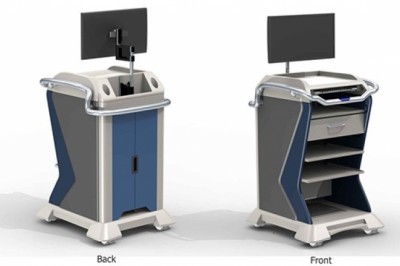views

Starting a small business or a loans for nonprofit organization with meager funding options can be challenging. Traditional lenders often have strict lending requirements like solid revenues, potential liabilities, and good credit scores.
If you’re considering other funding options because you don’t fill one of these requirements, you can consider nonprofit lenders who offer many funding options for businesses that have just started out and have trouble receiving funding.
What is a nonprofit lender?
Nonprofit lenders focus on smaller funding options of under $50,000 for small businesses and nonprofits that can potentially promote the economic conditions within the communities and provide support and aid in terms of education, health, family planning, and other numerous benefits.
As opposed to for-profit lenders that usually do not qualify small businesses for large credit loans and have extensive conditions that the businesses cannot fulfill, nonprofit lenders offer funding to such organizations that help with the community needs and provide loans with minimum to no interest.
What are the nonprofit funding options?
Nonprofit lenders feature various funding programs for small businesses and startups. Here are some good funding options for yours.
● Community Development Financial Institutions (CDFIs)
CDFI is a private institution whose mission is to provide affordable lending to low-income and distressed communities and include them in mainstream economic activities. These institutions are either venture capitals, nonprofits, or traditional banks. CDFIs lend smaller loans than banks, require extensive documentation, and take a long time to provide funds.
● Certified Development Companies (CDCs)
Certified Development Companies are not-for-profit corporations that provide loans to housing schemes and business developers that are affordable and nonprofit. They may be certified by the Small Business Administration (SBA) to process, regulate, and provide loans as per SBA rules and regulations.
● Economic Development Corporations (EDCs)
EDCs help establish and assist small businesses in a specific location or geographic area by providing grants, expert advice, and loans for small businesses.
● Microlenders
These are CDCs, EDCs, or nonprofit organizations that provide microloans to small ventures and disadvantaged business owners under $50,000.
● Credit Unions
Credit Unions operate in a similar way to CDCs and are meant to provide funding to nonprofits. They support small ventures by providing nonprofit grants at lower interests to not overburden the business and build a way to upscale their small projects into more stable ones.
Benefits of choosing a nonprofit lender
In the world of credit, nonprofit lenders have a long history of helping small businesses get a start or get back on their feet. They offer a wide range of financing options, from business loans to small business equipment and inventory financing.
There are many benefits to working with a nonprofit lender, including the following:
1) Nonprofit lenders are governed by strict rules regarding fair lending practices. A nonprofit lender must make loans only on the basis of the creditworthiness of the borrower.
2) While not every nonprofit lender will report your credit score, you can be confident that most nonprofit lenders will give you better credit scores than if you had applied with an individual lender who is not affiliated with a credit organization
3) There is no maximum repayment amount. You can't be required to pay back more than you borrowed.
Downsides of choosing a nonprofit lender
1) Nonprofit lenders that charge minimum to no interest rates may be difficult to find. They may also not have as much budget for marketing and it’s possible that they only operate in a certain geographic area.
2) They generally offer smaller loan amounts with the exception of the SBA 504 program that funds larger projects.
Are nonprofit funds hard to receive?
Yes because small businesses and nonprofit organizations usually don’t generate enough revenue to repay the lenders, and whatever they make is reinvested into the organization. Lenders tend to have strict requirements regarding business loans, and they prefer to have people with solid cash flow, which makes them likely to repay the loans. Moreover, to secure the loan provided, many lenders may request collateral and seize some money in case the nonprofit or small business isn’t likely to pay them back.












